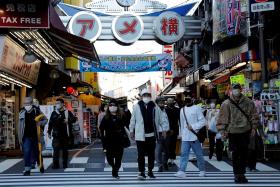Malaysian island turning into the world’s ‘trash can’
Pulau Indah is becoming main destination for plastic waste globally
PULAU INDAH, MALAYSIA: Hundreds of sacks filled with plastic waste from the US, Britain, South Korea and Spain spill onto the streets of an industrial zone in Pulau Indah, an island town just an hour's drive from Kuala Lumpur in Malaysia.
The stench of burning plastic and fumes from nearly a dozen recycling factories wafts through the neighbourhood.
Pulau Indah - ironically, the name means "beautiful island" in Malay - is one of many towns in Malaysia where illegal plastic recycling factories have popped up in recent months.
The trigger for this dumping deluge was a Chinese ban on waste imports from the start of this year, which disrupted the flow of more than 7 million tonnes of plastic scrap a year.
Malaysia quickly became the leading alternative destination, importing nearly half a million tonnes of plastic waste between January and July from just its top 10 source countries.
Dozens of factories have opened up in Malaysia to handle the waste, many without a licence, using low-end technology and environmentally harmful methods of disposal.
"The situation is getting worse, especially with more and more illegal plastic recycling factories," Ms Yeo Bee Yin, Malaysia's Minister of Energy, Science, Technology, Environment and Climate Change, told Parliament last week.
Used plastic is recycled into pellets, which are used to manufacture other plastic products, but the process comes with pollution risks. Plastic unsuitable for recycling is burnt, which releases toxic chemicals. Or it ends up in landfill, which can contaminate the soil and water.
Ms Yeo does not want Malaysia to be the "trash can" for developed nations, but Housing and Local Government Minister Zuraida Kamaruddin, who oversees waste management, said the government does not want to miss out on a business that could be worth billions.
In the Pulau Indah industrial zone, Reuters reporters saw nearly a dozen recycling plants, many without signboards or company names, though government data shows only two factories in that area have a licence to import plastic waste.
One of the bigger ones, Jingye Manufacturing, was shut down in August for not having a licence, according to an official notice. But workers in the factory and others nearby say it reopened within weeks.
When Reuters visited earlier this month, it was operating.
Reuters could not reach the owners of the factory.
One worker in the industrial zone said there were as many as eight illegal factories and many openly burned plastic.
"Every night they burn. I see black smoke at night, so I go over and ask him, 'Why are you trying to kill me?' They ignore me," he said.
In nearby Kuala Langat, the authorities found 41 factories operating illegally, many of them run by Chinese companies, according to Ms Zuraida. Around 30 were shut down by authorities in the last three months. - REUTERS
Get The New Paper on your phone with the free TNP app. Download from the Apple App Store or Google Play Store now



